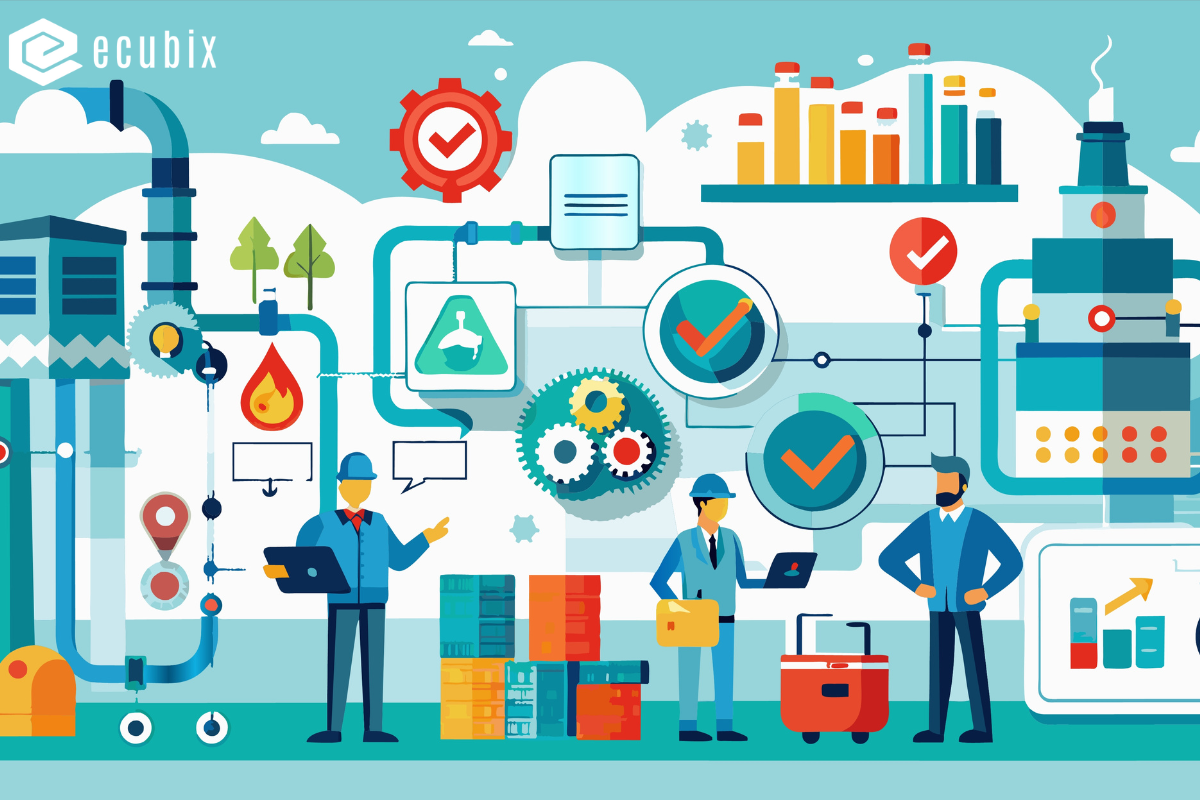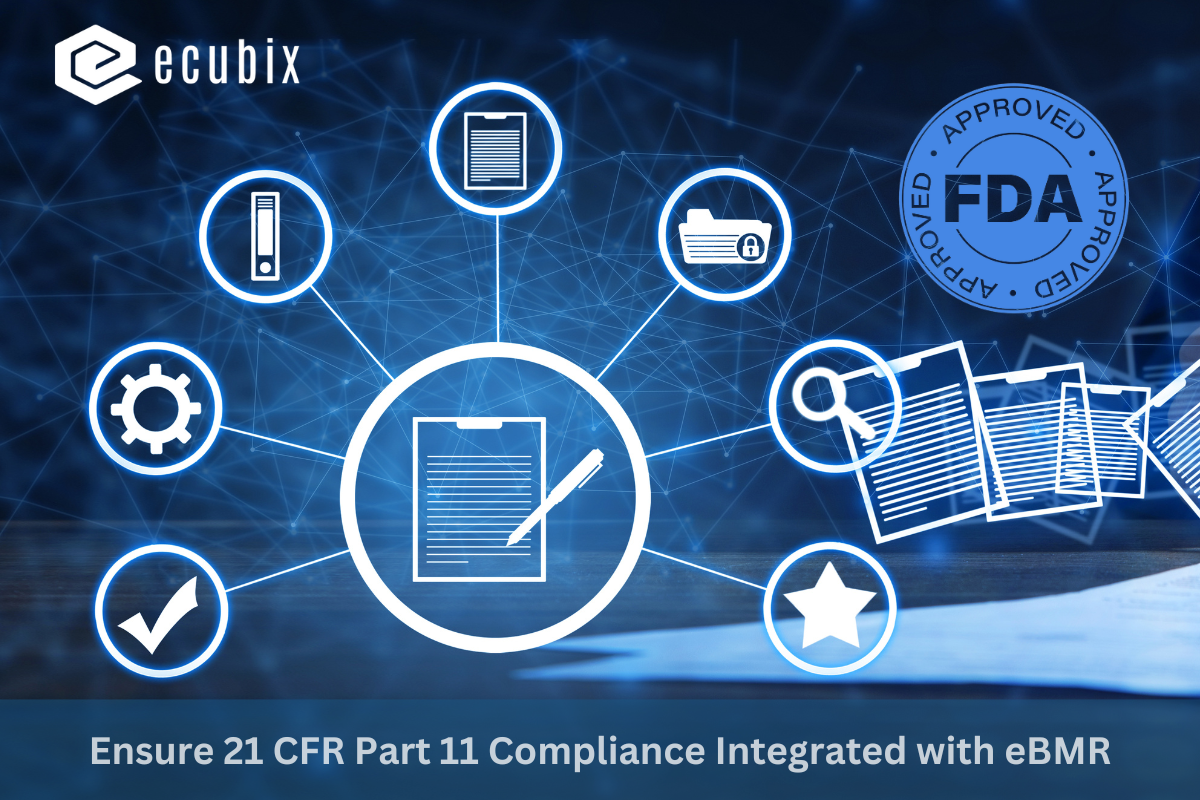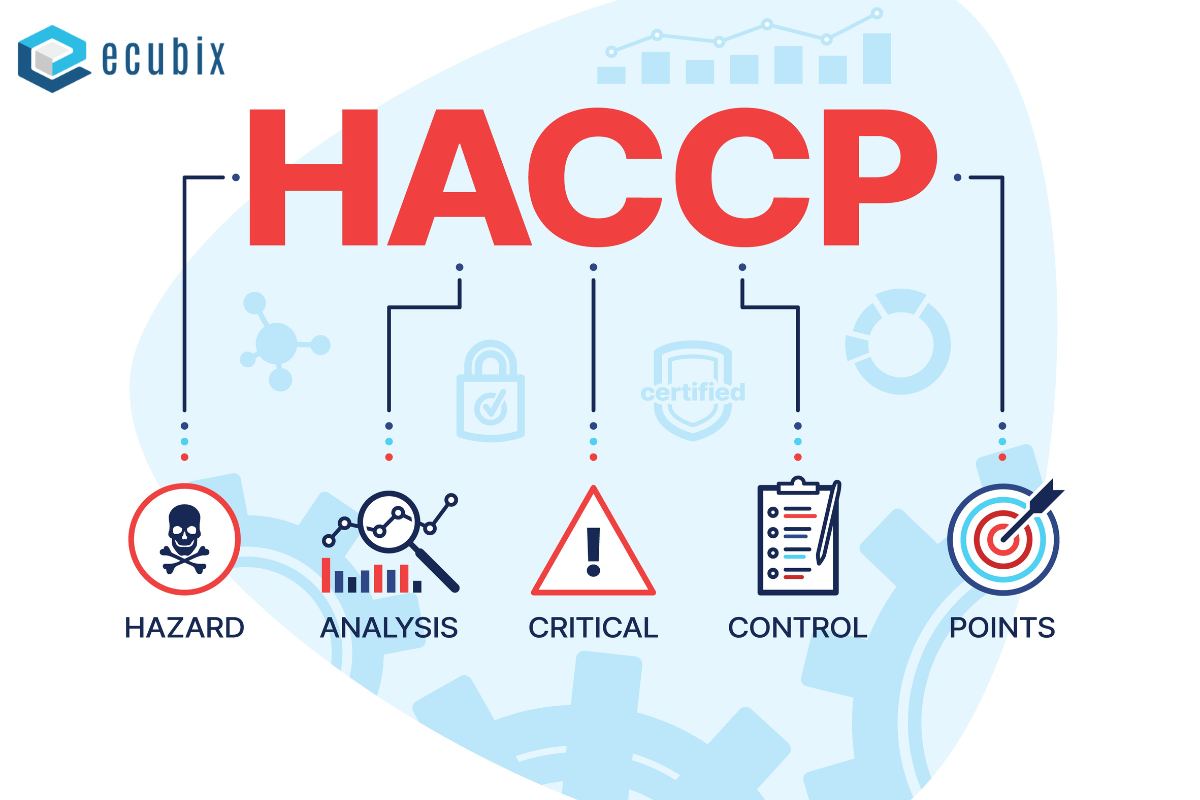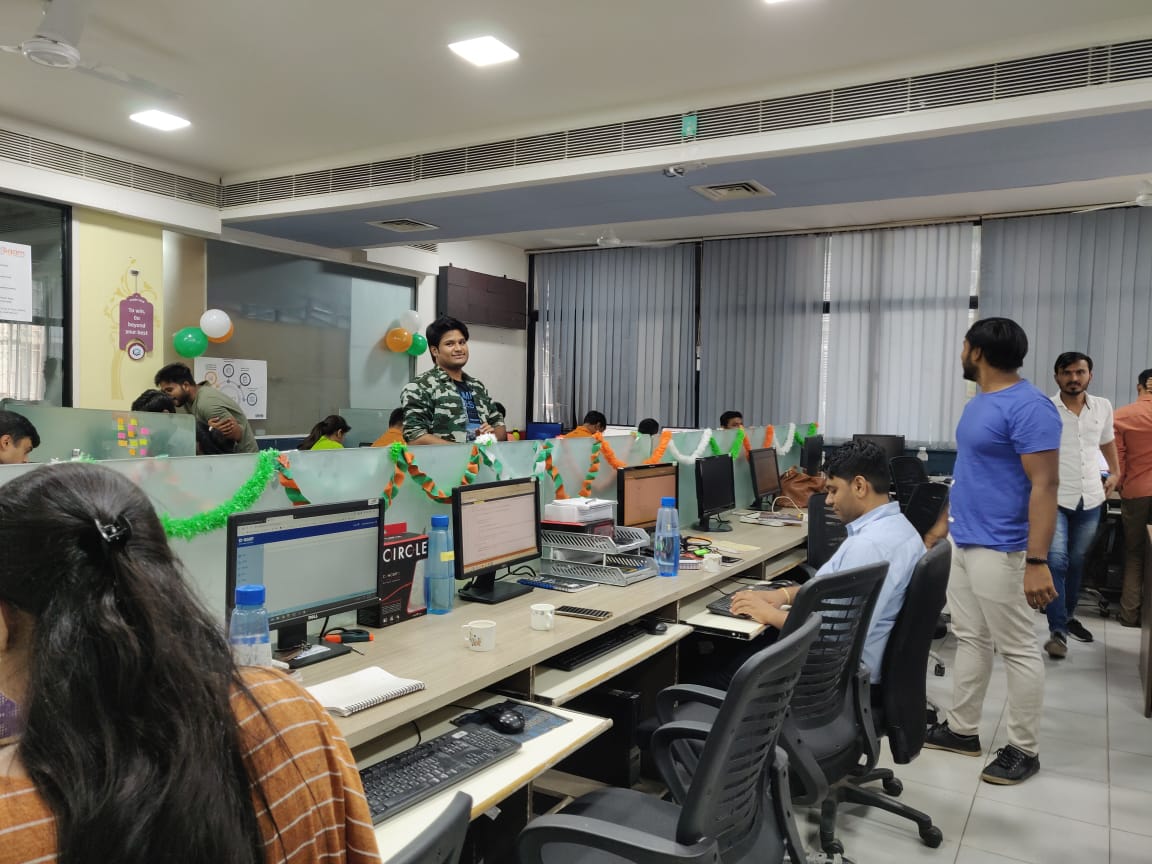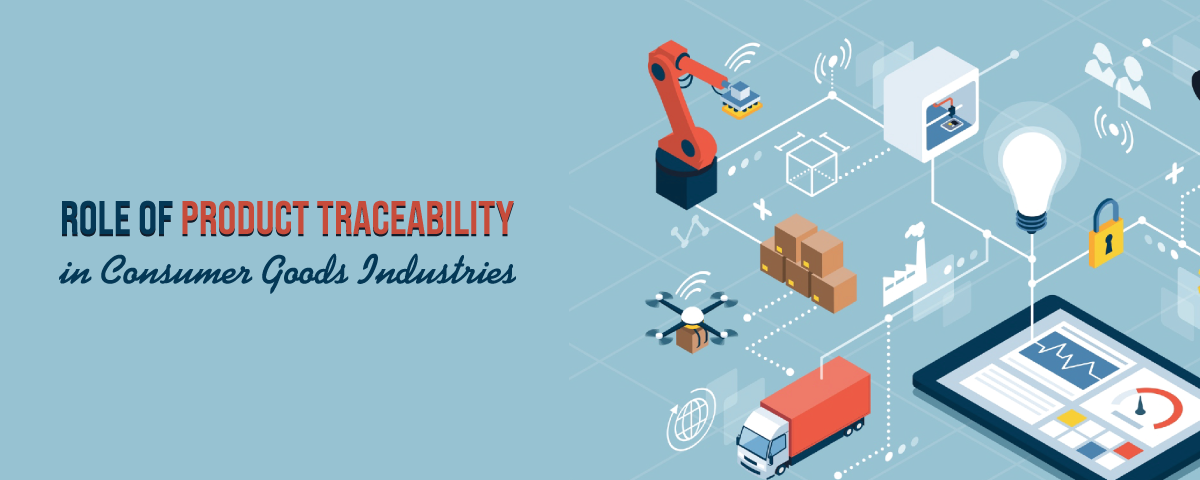
Published on: June 23, 2022
Traceability has emerged as one of the most integral highlights of the manufacturing process.
One of the conventional assumptions regarding a Track and Trace system revolved around the notion that it is applicable only for products subject to recalls. However, product traceability must be a mandatory aspect of the manufacturing process of every consumer goods provider.
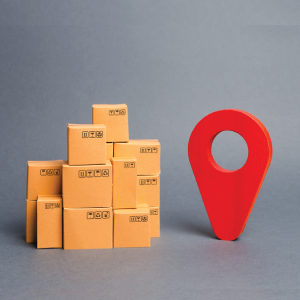
Product traceability introduces many promising benefits such as cost reduction, resource efficiency, and improved productivity. With the help of efficient tracking and tracing solutions, enterprises can strengthen their control over the production process on a granular level. Are track and trace a necessity for consumer goods industries? How does traceability work for consumer goods? Let us find the answers in the following discussion.
Definition of Product Traceability
Before you dive into the working of track and trace solutions, it is important to know the basic definition of product traceability. Product traceability refers to the ability to track all aspects of a product’s manufacturing and distribution.
Organizations with a competent tracking and tracing system can access data regarding the production lifecycle, product destinations, and inspection notes.
Types of Product Traceability
The next crucial highlight you need before deploying a track and trace system is to be aware of the types of product traceability. You must note that traceability focuses on many other things related to the product beyond its location. Product traceability also accounts for many other factors such as batch numbers, product use by consumers, inspection notes, product destination.
The two most common types of product traceability include upstream tracing and downstream tracing. Both of them have their unique advantages, depending on the traceability use case. Here is a brief explanation of the two types of product traceability systems.
Upstream Traceability
Upstream traceability refers to the process of tracing goods opposite to the logistical chain. The upstream track and trace solutions are applicable in the case of recalls which go back from the customer to the retailer and then the supplier. One of the common examples of upstream tracing is clear in the food industry. The European Union has imposed regulations for traceability of food products to ensure better customer protection.
Downstream Traceability
Downstream tracing refers to the process of tracing along with the normal flow of the supply chain. Therefore, product traceability starts from the sourcing point to the manufacturing stages before going through retail, sales, and consumer use. Most consumer goods companies use downstream track and trace system in the backend of their operations.
Why is Product Traceability Important for Consumer Goods Companies?
The demand for comprehensive and powerful product traceability solutions has been growing at exponential rates in recent times. Enterprises are actively seeking IT solutions for standardized tracking and tracing of consumer goods. Why? Here are some of the notable benefits of product traceability for consumer goods companies.
No More Counterfeit Goods
Counterfeit products are one of the biggest challenges for the consumer goods industry right now. Counterfeit goods present high risks as brands can lose sales potential as well as the trust of customers. The fashion industry is one of the biggest examples of a consumer goods industry facing the brunt of counterfeit products.
Effective track and trace solutions can help in verifying the journey of products from the stage of sourcing to the hands of the end consumer. As a result, product traceability can prevent counterfeiting in various sectors such as cosmetics, electronics, luxury goods, and spirits.
Compliance with Regulations
The next significant aspect pointing toward the necessity of track and trace solutions reflects on regulatory precedents for consumer goods. The constantly changing regulations in consumer goods industry focus on providing better consumer protection.
For example, the food industry has been witnessing a slew of updated regulatory standards. Product traceability helps consumer goods companies ensure that their products comply with new regulatory standards at all stages.
Proof of Origin
Many consumers are interested in figuring out the location from where raw materials for making the product have been sourced. Consumers are worried about the ethical concerns in manufacturing different products.
For example, buyers want to know that farmers have not been exploited for the coffee they enjoy every morning. Product traceability can offer flexible access to historical data regarding the sourcing of raw materials, thereby enabling easy verification of the product’s origins.
Implementing Product Traceability in Consumer Goods Companies
You can implement an efficient track and trace system for consumer goods companies with a clear idea regarding the essential requirements for the same. Here are some of the most important traits you need for implementing product traceability in consumer goods companies.
Serialization of product lots
Marking and labeling identifiers
Lot tracking and validation
Container recognition, labeling, and validation
Process tracking and validation
Process feedback and enforce improvements
Are You Prepared for Adopting Product Traceability?
Product traceability is more than just a necessity for consumer goods companies to earn the trust of customers. Effective track and trace solutions tailored according to your enterprise business objectives and market requirements can deliver promising benefits. Whether you are tracing the product from manufacturing to consumers or back from consumers to the manufacturers, product traceability delivers many productive insights. Find the best IT solutions for making the most of product traceability benefits right now.

